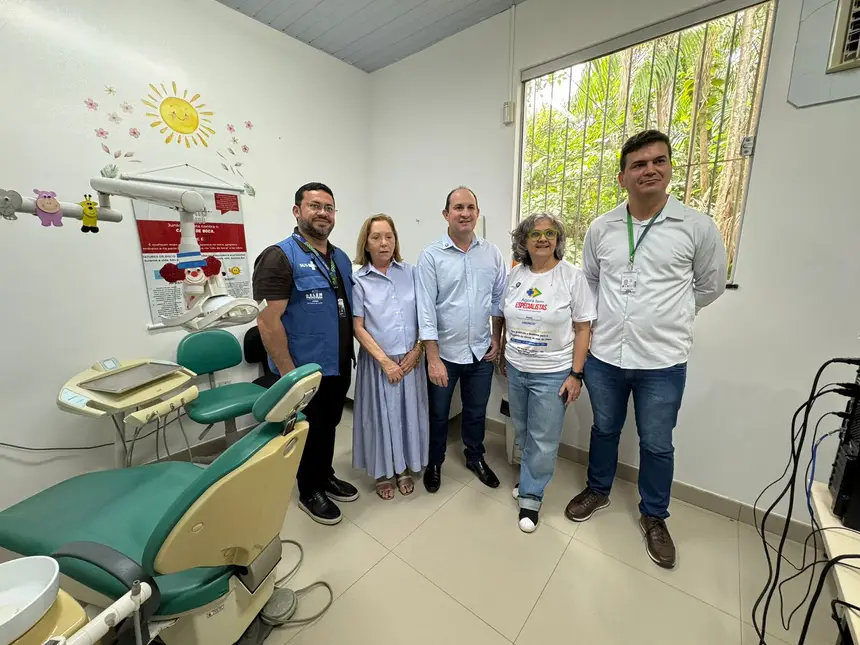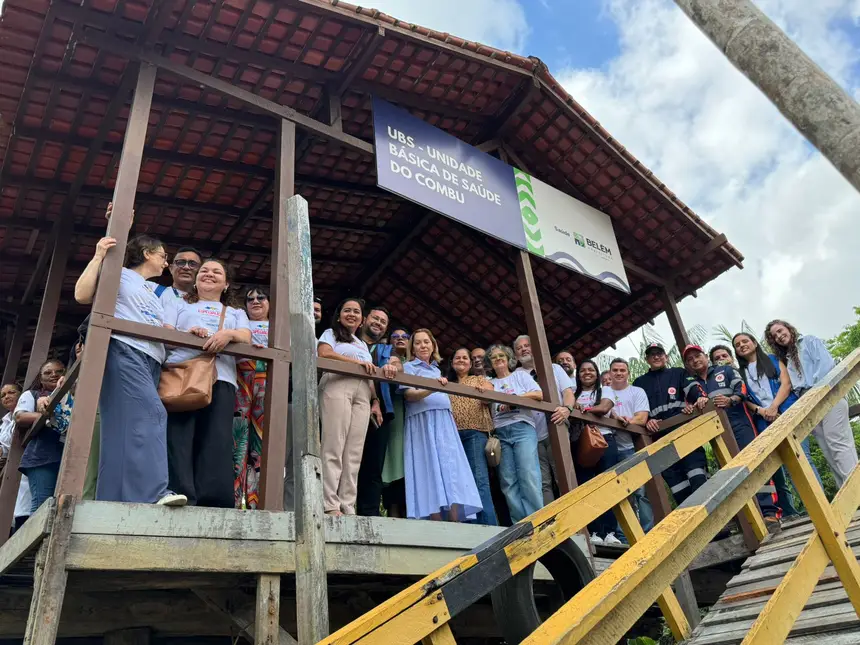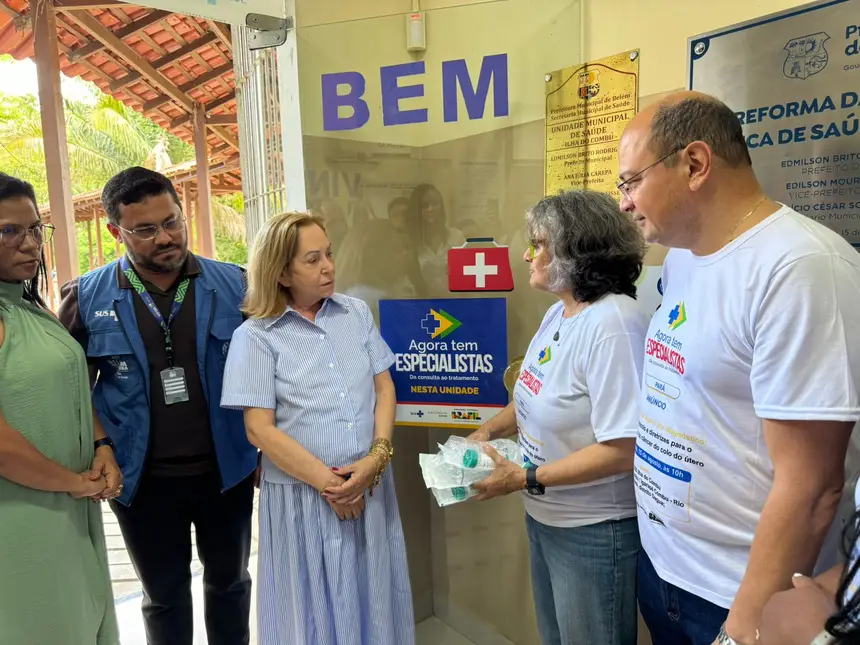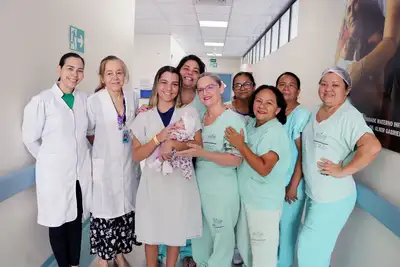Pará will expand cervical cancer screening with DNA-HPV protocol in the SUS
Belém is the first capital in the North to adopt the procedure, which detects the virus before cellular changes and ensures early diagnosis of the disease
The State Department of Public Health (Sespa) participated, this Friday (15), in the national launch of the new protocol and guidelines for cervical cancer screening, with the implementation of the DNA-HPV test in the Unified Health System (SUS). The event, held at the Basic Health Unit (UBS) of Ilha do Combu, which is part of the island area of Belém, brought together federal, state, and municipal authorities to present the technology, which promises to enhance early detection of the disease and save lives. Belém takes on a national highlight as the first capital in the North to adopt the protocol, serving as a technical and operational reference for other states.
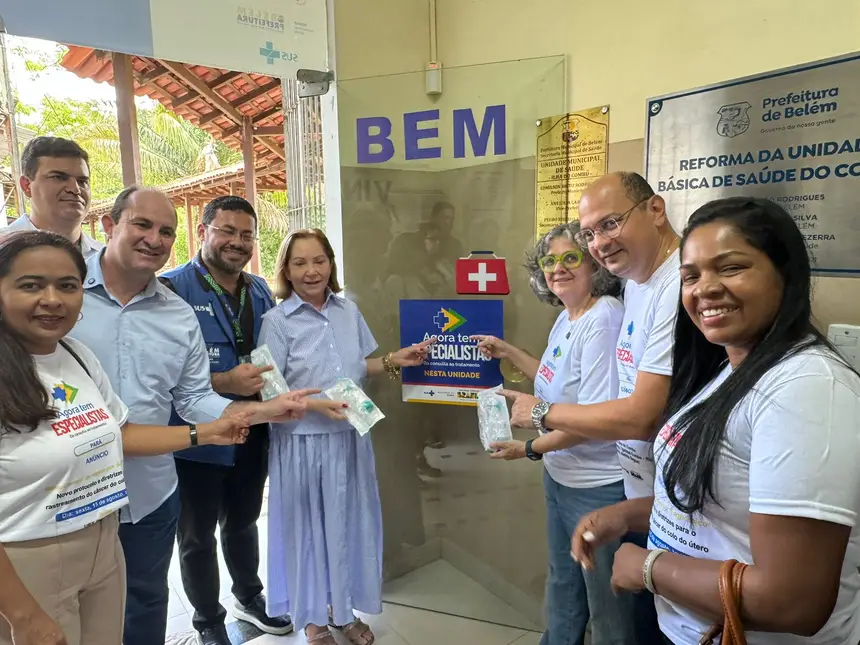
For the State Secretary of Public Health, Ivete Vaz, the implementation of this procedure in Pará is a milestone for promoting women's health. “We are offering a more sensitive and precise method, capable of identifying HPV before it causes any lesions. This means saving lives, avoiding more invasive treatments, and ensuring more peace of mind for thousands of women in Pará. Starting this implementation in a riverside unit symbolizes our commitment to bringing technological advances to all corners of Pará, leaving no one behind,” she emphasized.
Representing the Ministry of Health, Lena Peres, advisor to the Specialized Care Secretariat, explained the relevance of choosing the state for the launch. “In the entire North region, cervical cancer still has very significant numbers. To give you an idea, we have double the cases compared to the Southeast region. And this cancer causes completely avoidable mortality, not only through screening but also through the vaccine, which can now be administered in a single dose and prevent the disease. Pará was chosen for its capacity for immediate implementation, with the Evandro Chagas Institute being here and the possibility of soon disseminating this experience throughout the North,” she stated.
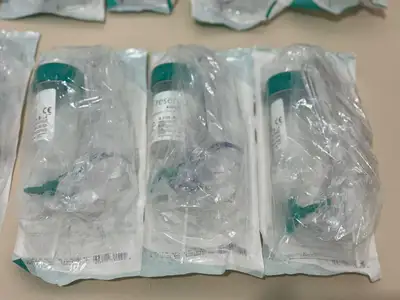
The exam identifies the genetic material of the Human Papillomavirus (HPV) in cell samples, allowing for the detection of high-risk types associated with the development of cancer even before visible changes occur. More sensitive than the Pap smear (cervical cancer screening), the test enables earlier diagnoses and rapid interventions, aligning Pará with national and international prevention recommendations.
Efficiency - The president of the Council of Municipal Health Secretariats of Pará (Cosems/PA), Jucineide Barbosa, emphasized the importance of the partnership between the state and municipalities. “We already have a very strong partnership in the municipalities, and we know that cervical cancer is still a major bottleneck, especially in hard-to-reach areas. I know the project well, and I know that the result is magnificent. The agility in attending to these women, from collection to follow-up, is essential. We are together in mobilization and encouragement for municipalities to develop and strengthen this work, ensuring the earliest possible diagnosis,” she reinforced.
The action is part of the “Now There Are Specialists” Program and results from a partnership between the Ministry of Health, Sespa, and the City Hall of Belém. During the event, there was a technical visit to the UBS of Combu, a demonstration of the DNA-HPV kit, and an explanation of the new protocol.

Priorities - In the initial phase, the project will be implemented in the health regions of Marajó I and II and in Belém, aiming to serve women aged 25 to 60, the target audience of the Program. By August 2026, it is expected that 35,551 exams will be performed, with a monthly average of approximately 3,000 collections. The first shipment of tests is expected to arrive by September, allowing for the immediate start of collections in the selected areas.
The initiative is part of the global effort to achieve the World Health Organization (WHO) goal of eliminating cervical cancer as a public health problem by 2030.
With the implementation of the pilot test, the flow of care will also be more agile. Positive results will go directly to reflex cytology, colposcopy, and, if necessary, biopsy. In negative cases, the interval for repeating the exam will be five years, reducing unnecessary exams and optimizing resources.


